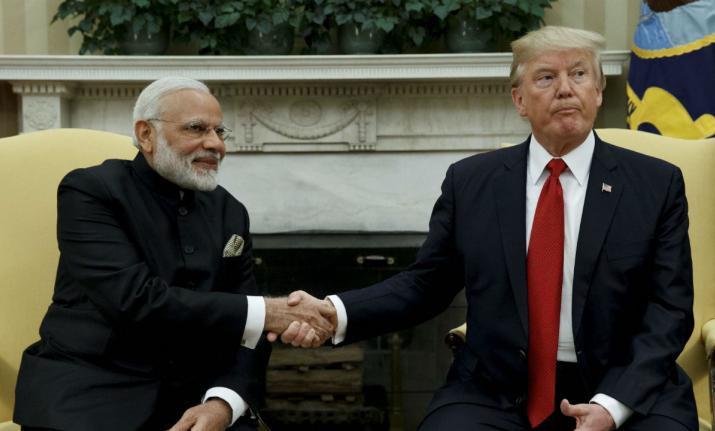
India bows to Trump; may block Huawei from 5G rollout

The Modi government appears to have caved into the United States’ pressure not to entertain Huawei’s 5G rollout in India, according to a report.
A high-level committee on 5G headed by the government’s Principal Scientific Adviser K Vijay Raghavan has said it is time India goes in for 5G trials “except for Chinese vendors”, says a report in the Times of India.
The report, quoting Vijay Raghavan, told the meeting on June 13 that India would have to look at the pros and cons of letting the Chinese get involved in the 5G trials. The committee comprises the departments of telecom, home, external affairs and science and technology besides the Intelligence Bureau.
Participants at the meeting differed in their views on whether to ban Huawei from India’s 5G trials, but eventually the agreement was that the Modi government must take into account the concerns expressed by the United States and its president Donald Trump that the Chinese behemoth was a front organisation of the Chinese government. This being so, the committee took Trump’s warning about Huawei possibly being a security threat if it was part of India’s 5G rollout.
Huawei is a key bidder to source technology for the 5G platform in India. In fact, it was the Department of Telecom (DoT) which invited Huawei in 2018 to participate in the 5G trials.
Interestingly, there has not been any proven evidence that Huawei in the past was found to have compromised any country’s security. It seems to stem more from US eagerness to prevent the Chinese from taking the lead on 5G and score over Western companies.
At the recent meeting in Osaka with Indian Prime Minister Narendra Modi on the sidelines of the G-20 summit, reports indicated that Trump all but sold the 5G platform as something that the West was capable of undertaking successfully and well. He also reportedly said the companies were looking forward to working with India and both would benefit.
That India may be tilting against Huawei may not come as a surprise considering that New Delhi has consistently been unable to counter US pressure on many issues, the recent one among them being the move to stop imports of oil from Iran under the Trump administration’s diktat. If India has angered Iran by stopping oil from that country, it stands to antagonise China if it decides to keep away Huawei.
As in the case of stopping oil imports from Iran which has necessitated India to make several adjustments in its oil trade including refining and procurement, so too would the implications be if Huawei eventually gets blocked out of 5G in India.
According to reports, Huawei is extremely competitive in its rates which means the cost will be much lower if the Chinese company is involved in India’s 5G buildup. Without Huawei in the picture, 5G costs will go up steeply. Also, Huawei infrastructure is already a significant player in India’s telecom platform and the punitive measure could have a domino effect on existing technology too. Huawei has in the two decades of its operations in India invested $ 2.5 billion and employs around 6000 people in its India offices.
Huawei meanwhile has tried to impress upon Indian authorities that it has no intention to compromise security and is willing to sign agreements to this effect. It has also advised India to take a considered decision on the issue.
The 5G technology represents a quantum jump in mobile telecommunications and will pave the way for a mind-boggling array of features including the Internet of Things and several other path-breaking technologies that promise to radically alter the world as we know it.

